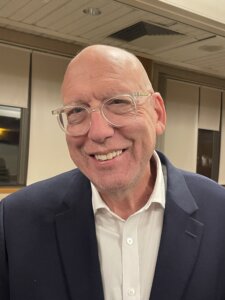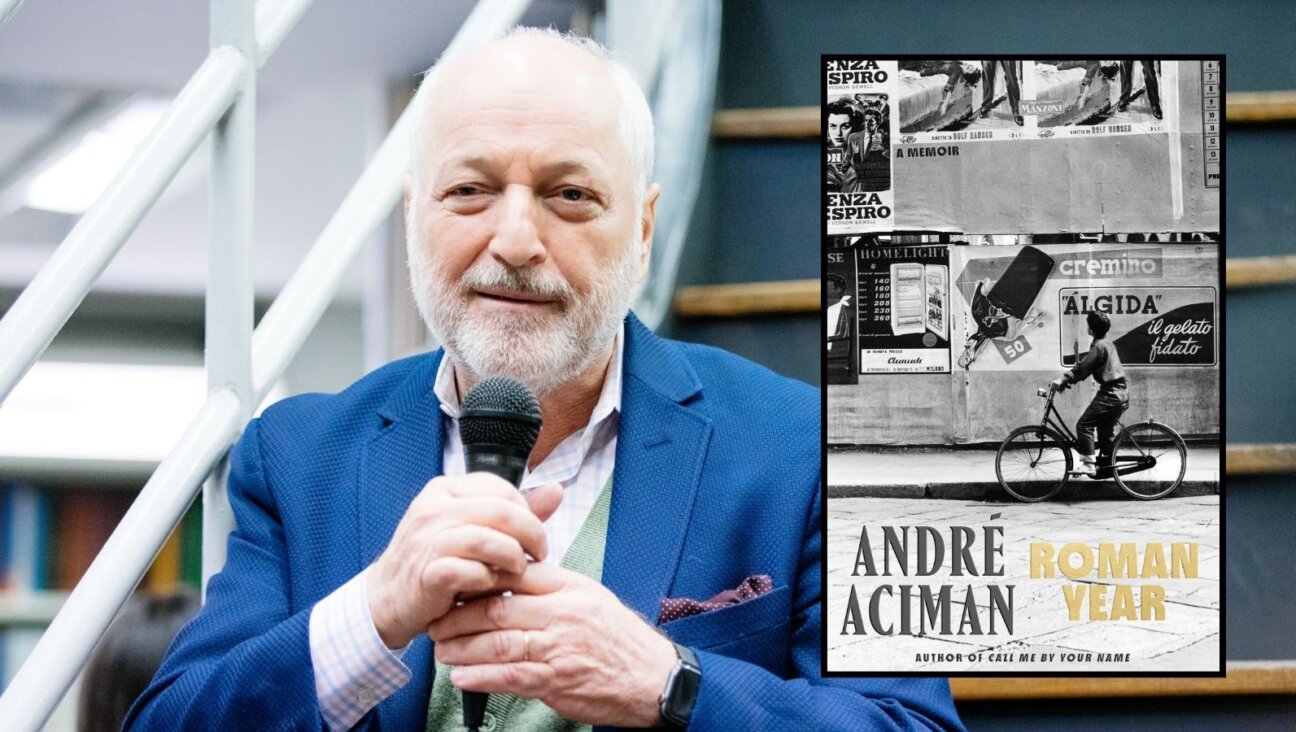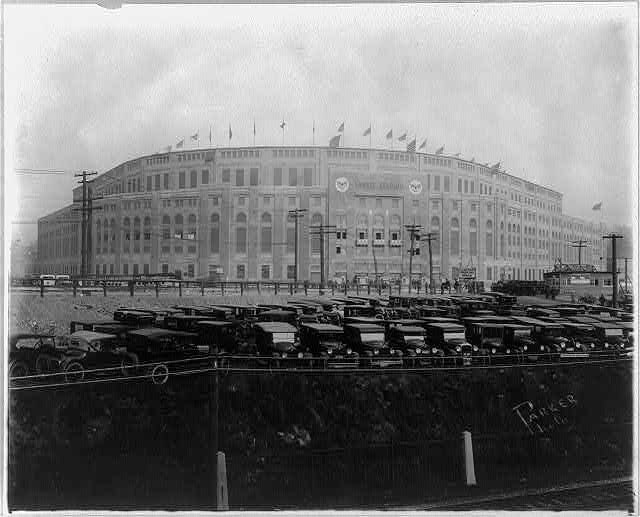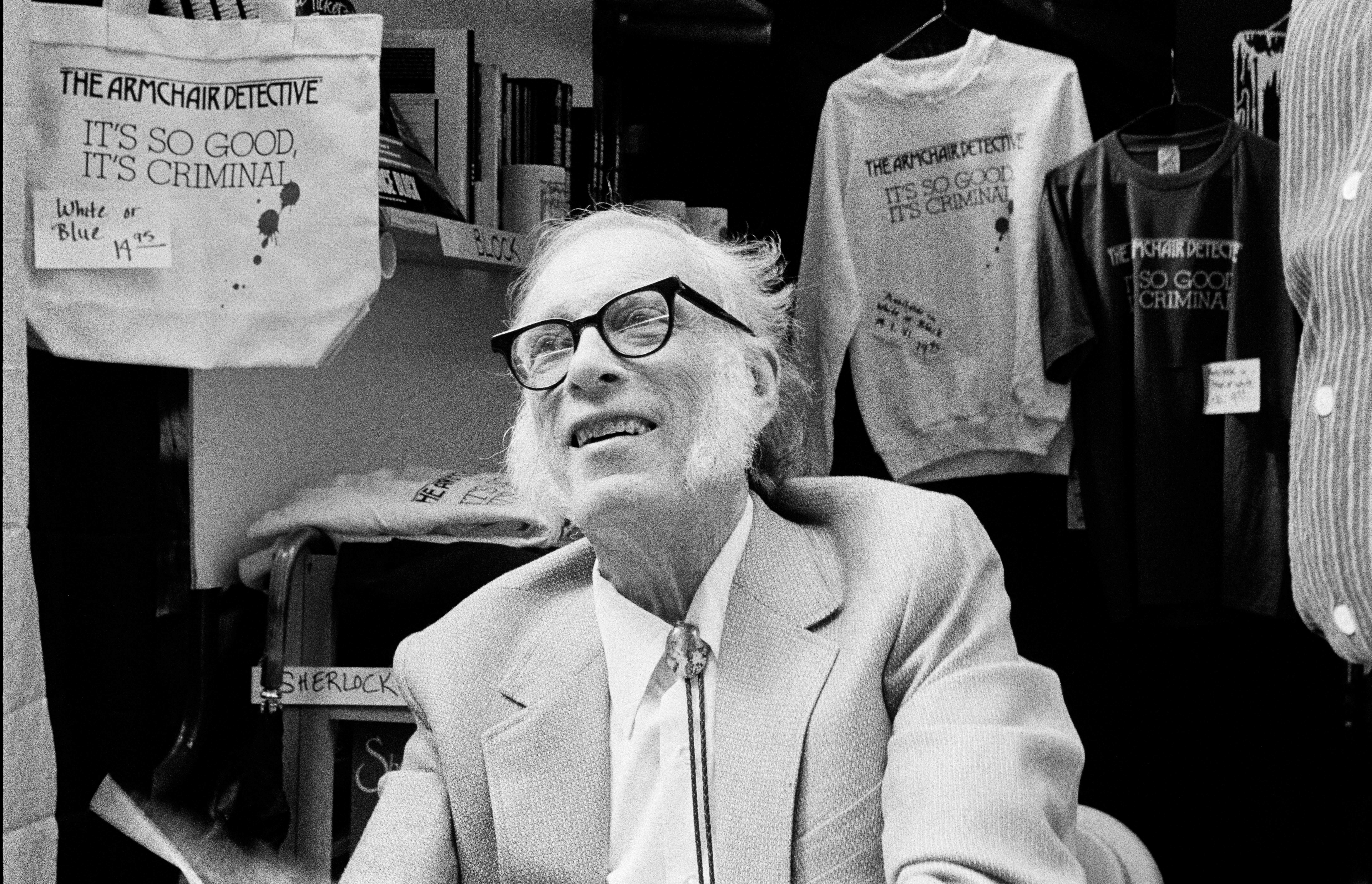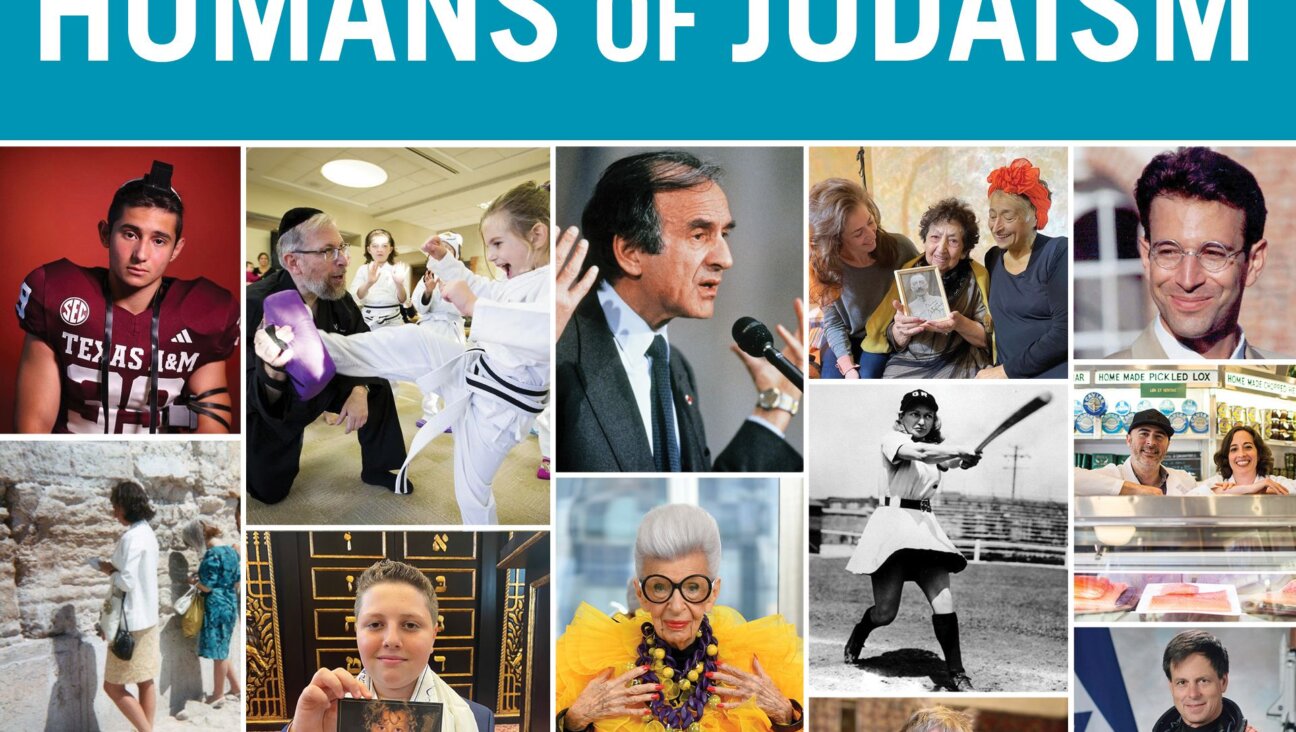Years before Oct. 7, Leonard Cohen wrote a song that anticipated its darkness
A close-reading of Cohen’s ‘You Want It Darker’ in a post-Oct. 7 world
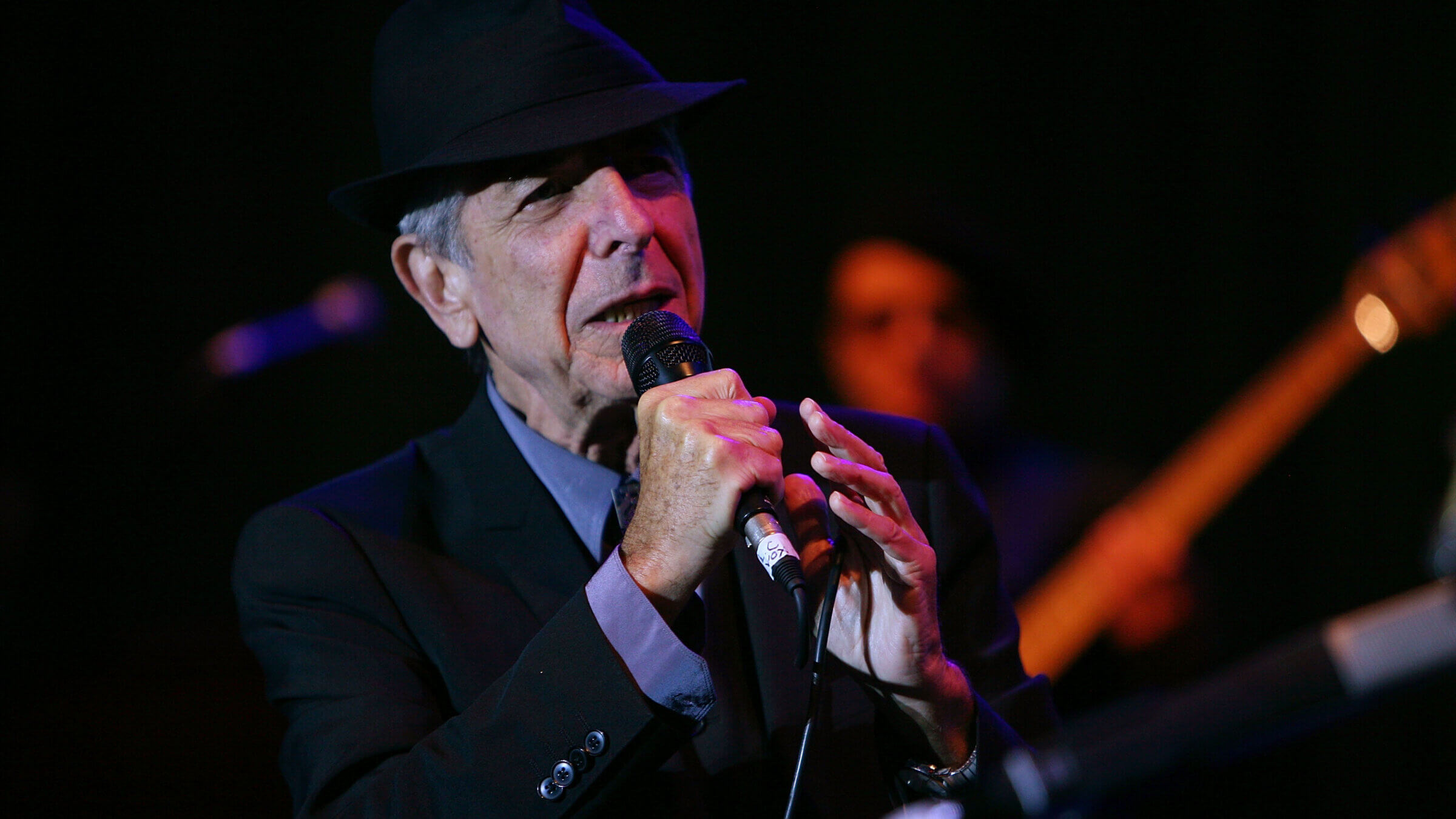
Leonard Cohen, 2008. Photo by Getty Images
Rock stars do not usually turn 90 years old.
That is precisely how old Leonard Cohen would have turned this year on Sept. 21.
Cohen is part of my Holy Trinity of Jewish singer-songwriters, along with Bob Dylan and Paul Simon. Of the three, Leonard was the most consistently Jewish — in his lyrics, thinking, and life.
Cohen came from a family of leaders in the Jewish community in Montreal. His maternal grandfather was a scholar of Hebrew grammar.
He cared about Israel. During the Yom Kippur War, he traveled to Israel to support the IDF, a journey chronicled in Matti Friedman’s Who By Fire?
When he recorded “You Want It Darker,” he enlisted the help of Cantor Gideon Zelermyer and the choir from his childhood synagogue, Shaar Hashomayim. The song won a 2018 Grammy award for best rock performance.
Alas, Cohen, who died On Nov. 7, 2016, did not survive to enjoy that honor..
Imagine if he had written “You Want It Darker” for Oct. 7.
If you are the dealer, I’m out of the game
If you are the healer, it means I’m broken and lame
If thine is the glory then mine must be the shame
You want it darker
We kill the flame.
Here, Cohen is indicting a God who is malevolent and/or incompetent. He is channeling Abraham, Moses, the Psalmist, Job and Tevye.
On Oct. 7, Cohen would have wanted to say Kaddish: “Magnified, sanctified, be thy holy name…”
But, on that day, “Thy holy name” was not “magnified, sanctified…”
He would have related to Assaf Gur’s post-Oct. 7 poem, “Kaddish” (in “Shiva,” edited and translated by Rachel Korazim, Michael Bohnen, and Heather Silverman): “Yitgadal v’yitkadash sh’mei raba: And no one came/ Many thousands called to Him on Shabbat morning/Crying His name out loud.”
Which renders God’s Name as “vilified, crucified, in the human frame.” The world’s most famous visual metaphor for human suffering and human redemption: a powerless Jew being tortured. As Marc Chagall knew, when he painted Jews on crosses. As the Christian theologian, Franklin Littell, knew when he described the Holocaust and antisemitism as “the crucifixion of the Jews.”
On Oct. 7, we witnessed tortures that would make crucifixion pale in comparison.
Yes, human violence “vilifies” the Name of God, and the image of God. But, there was another candidate for vilification: the Jewish State. Someone actually told me that Israel “should have turned the other cheek on Oct. 7” – vilified because the Jews chose not to imitate Jesus.
“A million candles burning for the help that never came.” The Children’s Memorial at Yad Vashem is a dark, underground cavern. There is a sole source of light: five memorial candles, reflected in mirrors, flames stretching into eternity, symbolizing the murders of 1.5 million children. No help came for those children. No help came on Oct. 7 — neither divine help (but those days are long over), or human help for the 32 Jewish children who are hostages in Gaza, many of them in tunnels as dark as the Children’s Memorial.
“Hineni, hineni: I’m ready, my Lord.” When Cohen wrote those words, he was standing before God, feeling the pangs of mortality.
But, in a post-Oct. 7 world, “hineini” channels and rehearses the Akedah — God’s command to Abraham to bind his son Isaac on the altar.
What the Crucifixion is to Christians, the Akedah is to Jews: an ever-available symbol of anti-Jewish violence.
I can barely imagine what it will mean for Israelis to hear this Torah text on Rosh Hashanah, as Jewish children and adults are bound — not on an ancient altar before God, but on a modern altar, before Molech, the ancient Canaanite god of death.
“There’s a lover in the story…” In most of Cohen’s songs, the lover would have been Cohen himself.
But this time, “the lover in the story” is the lover in the “Song of Songs.” “There he stands behind our wall, gazing through the window, peering through the lattice” (“Song of Songs” 2:9).
He would have known the classic interpretation: This is the Divine Lover, who flirts with us from a safe distance. From a distance that is now, too safe, as we squint our eyes to perceive the Divine Presence.
“But the story’s still the same…” We thought that the story of Jewish vulnerability had changed. On Oct. 7, we saw that we were wrong. By Oct. 9, we had restored a different story – that of Jewish power.
“There’s a lullaby for suffering, and a paradox to blame.” The children in Gaza lack mothers to sing them to sleep at night.
There are numerous examples of “a paradox to blame.” A Jewish state, an antidote to Jewish vulnerability, is vulnerable. A world, which sneered at Jewish weakness, also craved that weakness, and would sneer at Jewish power.
“But it’s written in the scriptures, and it’s not some idle claim.”
“Written in the scriptures” — Yes, the promise of the Land; yes, the prophetic exhortations that the Land is given on condition of righteousness; and yes, the book of Lamentations, to which the Jewish people have added new chapters in every generation.
They’re lining up the prisoners
And the guards are taking aim
I struggled with some demons
They were middle class and tame
I didn’t know I had permission to murder and to maim
You want it darker, we kill the flame.
That image of prisoners lining up and guards taking aim — straight from the Holocaust.
Those are the real demons of the world.
Leonard struggled with his yetzer ha-ra – the “evil,” libidinous urge. But, those inner “demons” were “middle class and tame,” They were no match for the demons of the world.
Who gave us “permission to murder and to maim?“ God gave us that permission, by granting us free will.
Cohen is right — if “you” (whoever “you” is), want it darker, then it is we who kill the flame.
And that hineini? It is no longer Leonard’s hineini of mortality to God.
We are in a new age of Jewish hineini. Since Oct. 7, Jews have been living in a new age of “hineini” — to the Jewish state, to the Jewish people, and perhaps, to God.
When I say Kaddish on Oct. 7, “You Want It Darker” will be wafting through my soul.
But, we don’t. We don’t want it darker.
We want the light.



